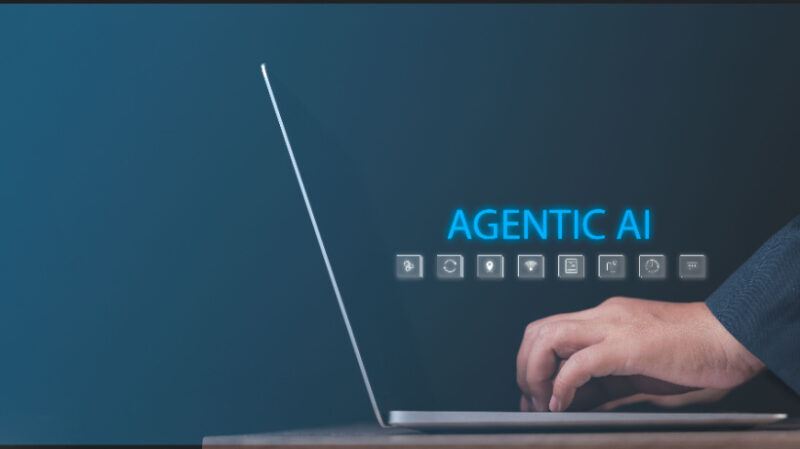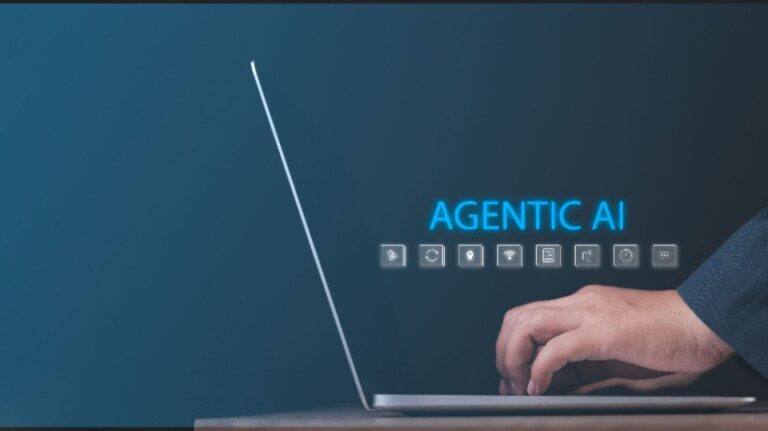
Agentic AI for personalized corporate learning
Today’s businesses face the pressing question of how to reskill and retain individuals over and over again as the technological revolution accelerates. Most corporate learning architectures are cookie-cutter, rigid, unconventional, and disconnected from tangible business outcomes. As automation, hybrid workplaces, and skill obsolescence accelerate, responsive, data-driven, and personalized learning is no longer a choice, but a necessity. According to Deloitte’s Global Human Capital Trends report, nearly 74% of organizations recognize that employee development is a “must-have,” but less than 20% believe learning architectures will move quickly enough to keep pace with business change. This is where LMSs and LXPs powered by agent AI step in and connect employee wants with business needs. They provide a personalized and scalable development path, aligning personal growth with strategic goals.
Personalized corporate learning at scale with an AI-powered LMS
Artificial intelligence has transformed the role of learning management systems (LMS) from passive repositories to learning experience platforms (LXPs) that are active drivers of continuous learning. AI-powered algorithms review performance reports, participation scorecards, and skill tests to determine what each employee should learn next. This allows you to continually change learning paths based on business needs and employee interests.
For example, an AI-powered LMS can automatically present contextual microlearning lessons to sales reps during a new product launch or recommend leadership simulations to first-time managers. Through adaptive reinforcement, AI transforms enterprise learning into a predictive rather than a reactive process.
Intelligent engagement and upskilling with Agentic AI
Traditional training courses can miss the mark and therefore have low completion rates and effectiveness. Agentic AI prevents this by creating a platform of continuous feedback, contextual engagement, and behavioral intelligence.
Uncover hidden learning behaviors and automate up to 90% of content curation, guidance, and progress monitoring, leaving the rest as manual management tasks for your L&D team. Some of the most advanced personalization technologies include:
A dynamic adaptive learning environment that adjusts according to employee performance. AI-driven virtual coaches and chatbots provide timely suggestions and guidance to boost learner confidence. Microlearning sequences are optimized for attention span and improve knowledge retention. A collaborative learning LMS model that combines peer discussion to build a bottom-up learning culture.
By connecting employee demands with smart recommendations, organizations achieve higher engagement levels and internal mobility. Global companies that adopt this model report can improve project implementation efficiency and reduce turnover. This clearly shows that personalization can benefit employees and optimize company performance at the same time.
Build a future-ready workforce through seamless integration
For enterprise transformation leaders, the ultimate challenge remains integration. However, AI-driven LXPs bridge this gap by integrating themselves into organizational infrastructure, from HRMS and ATS to BI dashboards, and providing a unified talent intelligence ecosystem.
This end-to-end integration enables seamless real-time skills mapping, workforce gap analysis, and predictive capability forecasting. For HR professionals, this means complete visibility into employee potential, succession preparation, and strategic workforce planning through one platform.
These technologies embody one of the organization’s greatest strengths: doing more with less, and scalability and going beyond budget are mission-critical to sustainably drive digital transformation. The power of personalized enterprise learning using AI will play a central role in this transformation, ensuring that the learning ecosystem remains flexible, adaptable, and closely aligned with evolving business objectives.
The new normal: ethical, frugal, and impact-driven AI
Ethics-first, AI-driven learning ensures that algorithms are unbiased and explainable, so end users know why certain content, skill paths, or career tips are being suggested. Create a fail-safe environment where learning options are powered by decisions based on empathy and fairness, rather than determined by arcane algorithms.
AI allows companies to scale automation with maximum certainty without compromising human essences like mentoring and belonging. Additionally, measurable ROI is an inevitable byproduct of such a foundation. That means reduced administrative overhead, improved engagement-to-performance ratios, and increased measurable capabilities within the group.
Conclusion: The future of corporate learning will be calibrated by AI
Corporate learning is no longer incremental. It’s systemic. Today, AI-driven LXP and LMS are no longer an afterthought, but a cornerstone of competitive differentiation. Through the integration of personalization, smart automation, and analytics, organizations can embark on a next-generation talent ecosystem that learns, becomes agile, and evolves along with the business.
There is a clear call to action for corporate L&D leaders.
Employ agent AI to power continuous learning activities and provide insight-driven content delivery. Establish a collaborative learning environment that fosters knowledge exchange. Implement a career development model and eliminate disparate learning technologies using an integrated, results-driven system.
As AI advances, organizations that intentionally incorporate it into their learning frameworks will not only empower their employees, but also create business resilience. Various platforms point to this future, where learning is no longer a cost but an evolving asset that drives innovation, engagement, and growth.


